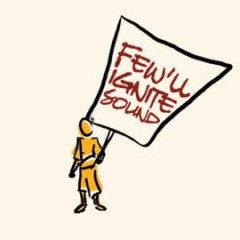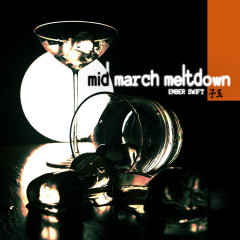Absentee Confetti
Getting married in China is not officially the fanfare and the ceremony; first you have to “dengji登记.” This is the act of getting your marriage certificate and, often, is all people do to signify their union. The next stage—a wedding—is a choice. In Chinese the expression is to “ban shi 颁示” or “make it public.” Some people get married but never “ban shi” because, let’s face it, weddings are a particular brand of crazy!
I liken the act of “dengji”(ing!) to getting your marriage certificate at a city hall. The thing is, it’s really more like signing the marriage license that happens at most Western weddings some point between the “I do” and the cake cutting. In my country, the certificate is generally issued on the day of the wedding. People don’t consider themselves married until someone is sweeping up the confetti.
Before this step could even be taken, however, I had to prove to the Chinese government that I’m not a polygamist. In other words, that I don’t have husbands in other countries or that I’m not already married. I found this fact ironic considering China changed its laws regarding men being allowed to have concubines less than a century ago. The only comforting thought is that foreign men and women poised to marry Chinese nationals have to prove their “eligibility” as bachelors/bachelorettes equally.
I went back to Canada that March and asked in the Toronto Chinese embassy what I would require for the process. They gave me the name of several Chinese-speaking lawyers in the city. The woman at the counter passed me a pre-photocopied list without a word through the glass window that separated us. She whisked the next person in line forward to take my place and dismissed me. It seemed that my inquiry was not unusual.
I phoned the office most conveniently located near to where I was staying and made an appointment. A few days later, I was sitting in front of a large oak desk and across from a Chinese lawyer who asked me about my partnership, my marriage history, and then peppered his questions with interest in my reasons for being in China in the first place. I instinctively responded to his questions in Chinese while he persisted in asking me additional questions in English. We did this language dance for a few minutes before I apologized in English and explained that I was just back from Beijing after six months and my brain was wired for Mandarin. He laughed.
A week later, after his having had the authority to search the national marriage records (or something like that), I was back at his office to pick up my stamped paper reporting that I was indeed a bachelorette (!). It was preceded with a translation in Chinese, the key to my ability to proceed with the “dengji” process in China.
After paying the fees (lawyers aren’t cheap), I distinctly remember looking down at the manila envelope in my hands as I walked back to the car that day and thinking, “This is so mafan 麻烦!” One of my favourite words in Mandarin, it has a combined meaning of “pain in the butt,” “needlessly wearisome,” “requiring too much energy” and “irritating” (but as a result of its wearisome nature).
But, I was also proud of myself for dealing with this issue in advance rather than waiting for my intended summer journey back to Canada when I knew I would rather be lounging on a dock somewhere rather than stuck in a city dealing with paperwork. Little did I know how necessary that pre-planning would be.
Back in China with documents luckily still tucked in my suitcase’s outside flat pocket where I’d put them in March, we were back in Shandong province for the May holidays when Guo Jian reminded me that it would be best to get our marriage certificates sorted out earlier than later. His rationale was that since I was going back to Canada in the summer, I could renew my visa before coming back, but this time I could apply with a marriage license rather than just as a tourist. As you know, the lure of an easier visa process for China was part of the draw to get married in the first place, so I eagerly agreed to get the certificate whenever it was possible.
Again, I was completely unaware that the process is so “mafan.” He suggested this while we were back in his hometown because that’s the only place that he can get this paperwork done! Without a Beijing “hukou 户口” (more info about hukous here), he would be unable to go to the marriage office in the city in which we were living together.
Now, every city has a government office specifically designed for completing the dengji process but, if you’re a Chinese national (Guo Jian) marrying a non-Chinese citizen (me), you have to go to a different office yet again. In his home city of Zibo where there are five million people living and working, this specific office gets about twenty applications a year.
We arrived one morning just after the national May holidays had ended and we poked our heads in the doorway to the “marry-a-foreigner” office only to see the clerks gathered around a short coffee table, two on the sofa and one on a small stool, the room ensconced in cigarette smoke, with a lively poker game in process. They looked up at us, startled. This has got to be the easiest government job ever! Imagine only having to process paperwork twenty times a year!
They hastily shoved the cards and the overflowing ashtrays aside and we walked into the cloud of smoke with our marriage photos in hand, ready to fill in the paperwork. We had already posed for our photos at a camera center that week. In China, small passport-sized photos are essential components to almost every official application. These “marriage photos” featured both of us in the frame. Standard issue.
I, of course, had to have my passport as well and it was taken from my hands immediately. The paperwork was begun. I sat on the couch and watched it all like a bad television show. The exchange was all in Shandong hua 山东话 (the dialect of the province) and so I admit to only catching some of it, but it basically began with questions for Guo Jian and his parents (who had accompanied us) about where he had met me, how long I had been in China, how long we’d been dating, etc. I found it quite invasive, but I’m not exactly sure if it’s standard to ask or if they were just curious. Sometimes these lines are blurry.
The paperwork was filled in and I only had to sign it. No one asked me to fill in my portions. In fact, no one said a single word to me. I was just the foreigner on the couch, perched for all to see, and soon I had a small little red book in my hands (not unlike a thin, red passport) that was my ticket to an easy Visa application for the rest of time.
We were in and out within half an hour.
Guo Jian and I turned to each other as we exited the room, leaving the men and the smoky poker parlour behind us with the click of a doornob, and I asked him, “Do you feel any different?” “No,” he replied and we both laughed awkwardly.
We were married.
It felt so surreal to me that I didn’t even register its reality. I forgot to mention it to friends when I returned in the summer. Even when I got a fancy new Chinese visa that was good for a whole year, I still didn’t register myself as a “married woman.” I continued to imagine the wedding—scheduled for October—to be the “real” moment of marriage. In my head, it could still be called off if necessary. I still had time to change my mind if our relationship became too “mafan.”
In other words, I didn’t feel married. Not in the least.
Well, after all, there was no sign of confetti.








